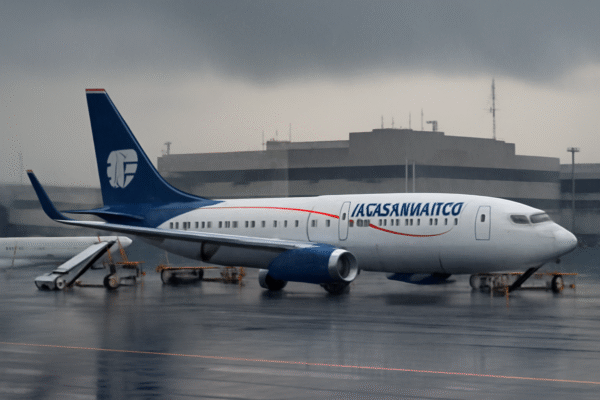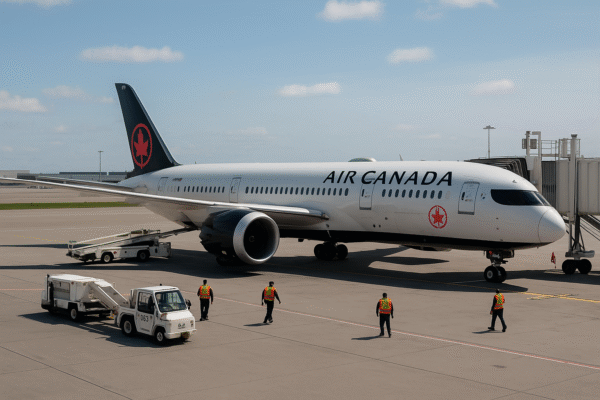Lebanon is witnessing a remarkable shift in its tourism landscape as Beirut–Rafic Hariri International Airport records its highest May arrivals since 2019. The surge in passenger traffic marks a promising turn for a country plagued by political instability, economic collapse, and infrastructure woes. With summer fast approaching, Lebanese authorities and tourism stakeholders are hopeful that a resurgence in travel can help pull the nation out of its long-standing crisis.
According to Lebanon’s Civil Aviation Authority, nearly 300,000 international arrivals were recorded at Beirut Airport in May 2024, pushing total monthly passenger traffic to over 560,000. This reflects a 10.26% increase compared to the same month last year and adds to the more than 2.4 million travelers who have used the airport so far in 2024—a clear uptick from 2.29 million during the same period in 2023.
While many sectors of Lebanon’s economy remain mired in dysfunction, tourism is proving to be a rare bright spot. With summer holidays underway in Europe and the Gulf, Lebanon hopes to turn increased flight bookings into a sustainable economic upswing.
Tourism Emerges as Lebanon’s Economic Lifeline
Lebanon’s ongoing financial collapse, triggered in 2019, continues to impact daily life. Hyperinflation has decimated household purchasing power, public sector workers remain on strike, and sanitation crises persist. Yet amidst these challenges, the resilience of Lebanon’s tourism sector is drawing cautious optimism.
Tourism, traditionally a cornerstone of Lebanon’s GDP, is reemerging as a vital economic pillar. The influx of visitors has been welcomed by hotels, restaurants, and tour operators, many of whom struggled to survive over the past five years. Local businesses across Beirut and the mountainous regions of Bcharre, Ehden, and Aley are now preparing for a potential bumper summer season.
Security Fears Resurface Amid Israeli Airstrikes
Despite the promising numbers, regional tensions threaten to derail Lebanon’s tourism momentum. In May 2024, Israeli airstrikes targeted Beirut’s southern suburb of Dahieh, igniting concern that renewed conflict could scare off tourists.
Lebanese officials, including Information Minister Paul Morcos, alleged the strikes were timed to sabotage the country’s fragile tourism revival. While no further escalations followed, the incident served as a stark reminder of Lebanon’s delicate geopolitical environment.
Still, authorities have pressed forward with confidence, emphasizing upgraded airport security and strong coordination with aviation partners to maintain safe travel corridors.
Symbolic Resumption of Gulf Flights
In a major diplomatic breakthrough, commercial flights from the United Arab Emirates resumed service to Beirut in May 2024 after a four-year suspension. The occasion followed a landmark visit by newly elected Lebanese President Joseph Aoun to Abu Dhabi and was marked by enthusiastic crowds at Beirut Airport.
The return of Gulf carriers is more than symbolic—it paves the way for enhanced economic ties and a potential influx of high-spending visitors from the UAE, Saudi Arabia, and Qatar. Lebanon’s tourism ministry is also reportedly in talks with other Gulf states to restore and expand air connectivity ahead of the busy summer travel window.
Tourism Infrastructure Upgrades Underway
To support the influx of travelers, the Lebanese government has initiated improvements at Beirut International Airport. These include streamlined passport control, updated terminal signage, and increased sanitation protocols. Airport authorities have also ramped up training for ground staff and customs agents to ensure a smoother passenger experience.
Beyond the airport, the Ministry of Tourism has launched a national campaign aimed at improving urban aesthetics. Political banners have been removed from major entry roads into Beirut, and efforts are being made to beautify public spaces and reinforce Lebanon’s image as a hospitable, culturally rich destination.
However, challenges remain. Garbage collection is still inconsistent in parts of the capital, threatening to undermine the country’s tourism image. The government has pledged to address the waste management issue before peak tourist arrivals in July and August.
Local Businesses Pin Hopes on Summer Season
Hospitality operators are cautiously optimistic that 2024 will be their best year since the start of Lebanon’s financial crisis. Hotel occupancy in Beirut has climbed to over 60%, with bookings steadily increasing across beach resorts in Byblos, Batroun, and Tyre. Tour operators are reporting strong demand from expatriates and diaspora communities eager to return home.
Many businesses are also targeting short-haul tourists from Turkey, Cyprus, Jordan, and Egypt—markets that are more resilient to regional tensions and currency fluctuations. Travel packages highlighting Lebanon’s culinary scene, historic ruins, and eco-tourism trails are being promoted aggressively through social media and Gulf travel expos.
Looking Ahead: Lebanon’s Tourism Crossroads
Lebanon’s current momentum signals more than a seasonal trend—it could mark the beginning of long-term recovery through tourism. Officials remain focused on stabilizing diplomatic ties, enhancing visitor safety, and restoring public trust in essential services.
If security conditions remain stable and infrastructure improvements continue, Lebanon could see upward of 3.5 million visitors by year’s end, a post-crisis record.
For now, the bustling terminals at Beirut Airport offer a glimmer of hope in a country long yearning for economic stability and international reintegration.
Conclusion
As Lebanon steps cautiously into summer 2025, tourism is emerging as a potential game changer. With passenger arrivals surging, Gulf flights resuming, and confidence cautiously rebuilding, the country may be on the brink of a transformative travel-led recovery. Beirut Airport’s performance is more than just a traffic milestone—it’s a symbol of resilience and renewal.
For more travel news like this, keep reading Global Travel Wire



















